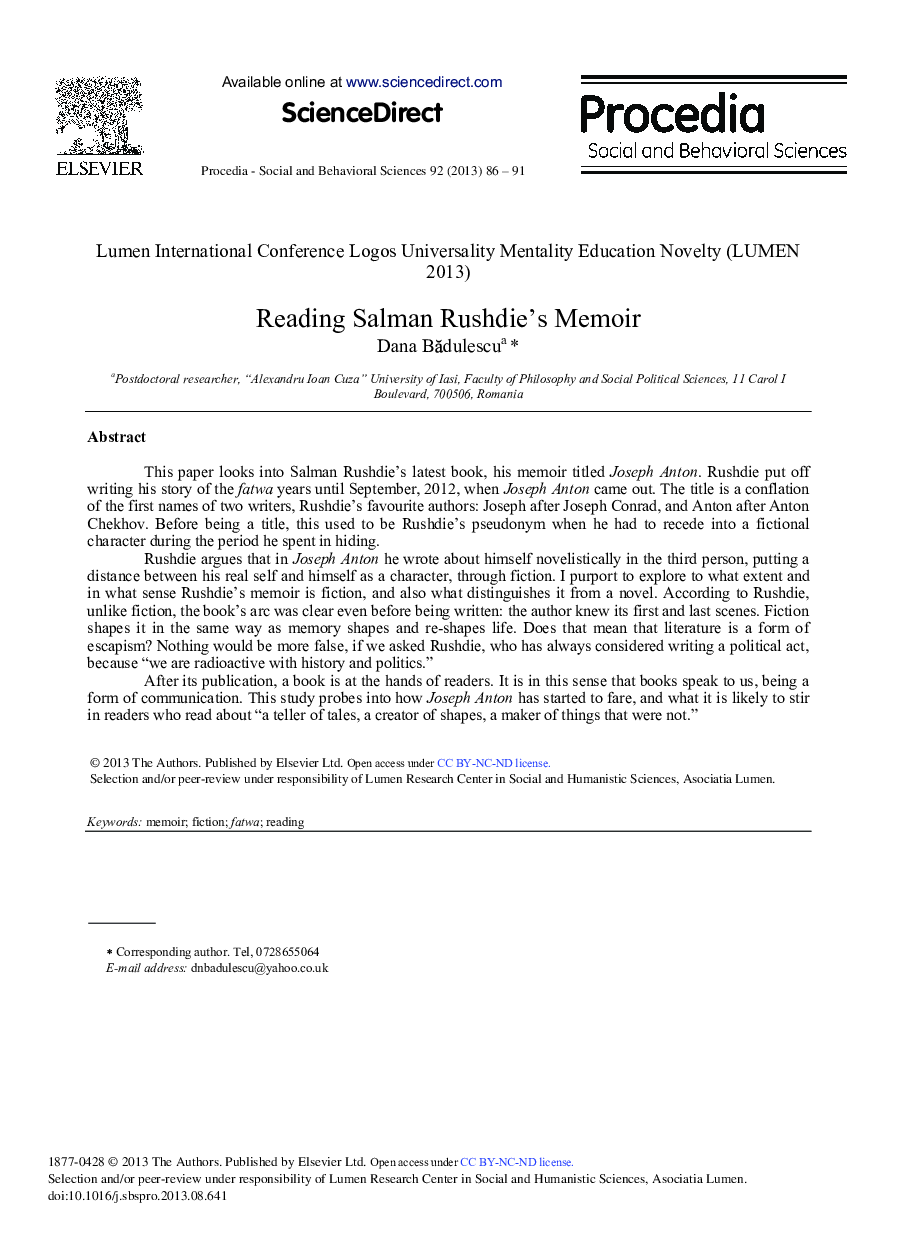| Article ID | Journal | Published Year | Pages | File Type |
|---|---|---|---|---|
| 1117897 | Procedia - Social and Behavioral Sciences | 2013 | 6 Pages |
This paper looks into Salman Rushdie's latest book, his memoir titled Joseph Anton. Rushdie put off writing his story of the fatwa years until September, 2012, when Joseph Anton came out. The title is a conflation of the first names of two writers, Rushdie's favourite authors: Joseph after Joseph Conrad, and Anton after Anton Chekhov. Before being a title, this used to be Rushdie's pseudonym when he had to recede into a fictional character during the period he spent in hiding.Rushdie argues that in Joseph Anton he wrote about himself novelistically in the third person, putting a distance between his real self and himself as a character, through fiction. I purport to explore to what extent and in what sense Rushdie's memoir is fiction, and also what distinguishes it from a novel. According to Rushdie, unlike fiction, the book's arc was clear even before being written: the author knew its first and last scenes. Fiction shapes it in the same way as memory shapes and re-shapes life. Does that mean that literature is a form of escapism? Nothing would be more false, if we asked Rushdie, who has always considered writing a political act, because “we are radioactive with history and politics.”After its publication, a book is at the hands of readers. It is in this sense that books speak to us, being a form of communication. This study probes into how Joseph Anton has started to fare, and what it is likely to stir in readers who read about “a teller of tales, a creator of shapes, a maker of things that were not.”
